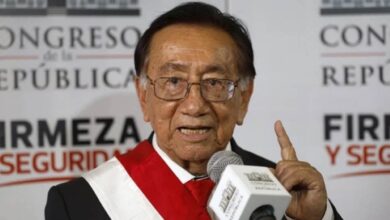The objections against JEP were rejected
Listen this article
After the vote in the House of Representatives, the objections of Ivan Duque prepare for the next vote in the Senate

With a vote of 110 votes in favor and 44 against, the House of Representatives denied the objections proposed by President Iván Duque. On March 10, Duque made public his objections against the Statutory Law of the Special Jurisdiction for Peace (JEP, in Spanish).
Leer en español: ¡Negadas! Las objeciones de la JEP fueron rechazadas
As mentioned in another article, these objections refer to the reparation of victims; the High Commissioner for Peace will decide who participates in a peace process; define when the investigations of the ordinary justice related to the JEP can be suspended, according to Semana to "allow the waiver of criminal action against crimes against humanity, genocide or war crimes in relation to those who are not responsible"; maintain extradition and, finally, prevent the entry of evidence to the JEP, when they do not have in fact.
Maybe you'll read: ABC to understand JEP's situation
The political parties voted and Cambio Radical was expected to be the party that "broke the vote", since traditional parties like the Centro Democrático, Mira, and Colombia Justa Libre were clear that they would support the government's decision. While parties like the Alianza Verde Party, La U and Liberals, voted in favor of supporting peace. According to Semana, "Cambio Radical, after several confrontations with the Char house, which tends to support Uribism, decided to reject the objections."
En #PlenariaCámara ha sido aprobada la ponencia negativa #ObjecionesJEP con 110 votos a favor y 44 en contra pic.twitter.com/NarDLhq8Qy
— Cámara de Representantes de Colombia (@CamaraColombia) 9 de abril de 2019
Now, it will be the Senate the institution in charge of the second voting of the objections of the JEP. According to El Tiempo, the vote is expected to take place after Holy Week, and in it the senators can reject or accept it again; however, this second scenario is not yet clear.
On the other hand, Uribismo, headed by Ernesto Macias, president of the Congress, intended to delay the vote, arguing that first had to go through the Senate. According to Publimetro, "the proposal was denied on two occasions by the plenary of the House, which led to the debate and the vote." For several analysts, Macias' move aimed to delay the plenary to get more votes.
The government does not have it so easy
With the results of the first vote, it is clear that several political parties will not facilitate the Government's path in the face of the changes in the peace process, as it is the first time that the opposition has imposed itself against Duque. Undoubtedly, those political parties that were in agreement with what was negotiated by Juan Manuel Santos, came together to prevent an attack against peace.
Cambio Radical was the surprise of the vote, because although it manifested its support in points of agreement, it was also critical of others "especially in what has to do with transitional justice", according to El Tiempo. For several analysts, it was clear that Cambio Radical was going to support the objections of the Government, but internal tensions would have been one of the reasons in voting in favor of the denial, according to the same media.
#PazSinObjeciones. No cabemos de la alegría de poder decirle a los colombianos que la @CamaraColombia con una votación de 110 contra 44 votos ha debatido y decidido rechazas las objeciones de @IvanDuque sobre la Ley Estatutaria de la JEP. pic.twitter.com/ZyS7DaFHxY
— Mauricio Toro (@MauroToroO) 9 de abril de 2019
LatinAmerican Post | Laura Viviana Guevara Muñoz
Translated from "¡Negadas! Las objeciones de la JEP fueron rechazadas"




